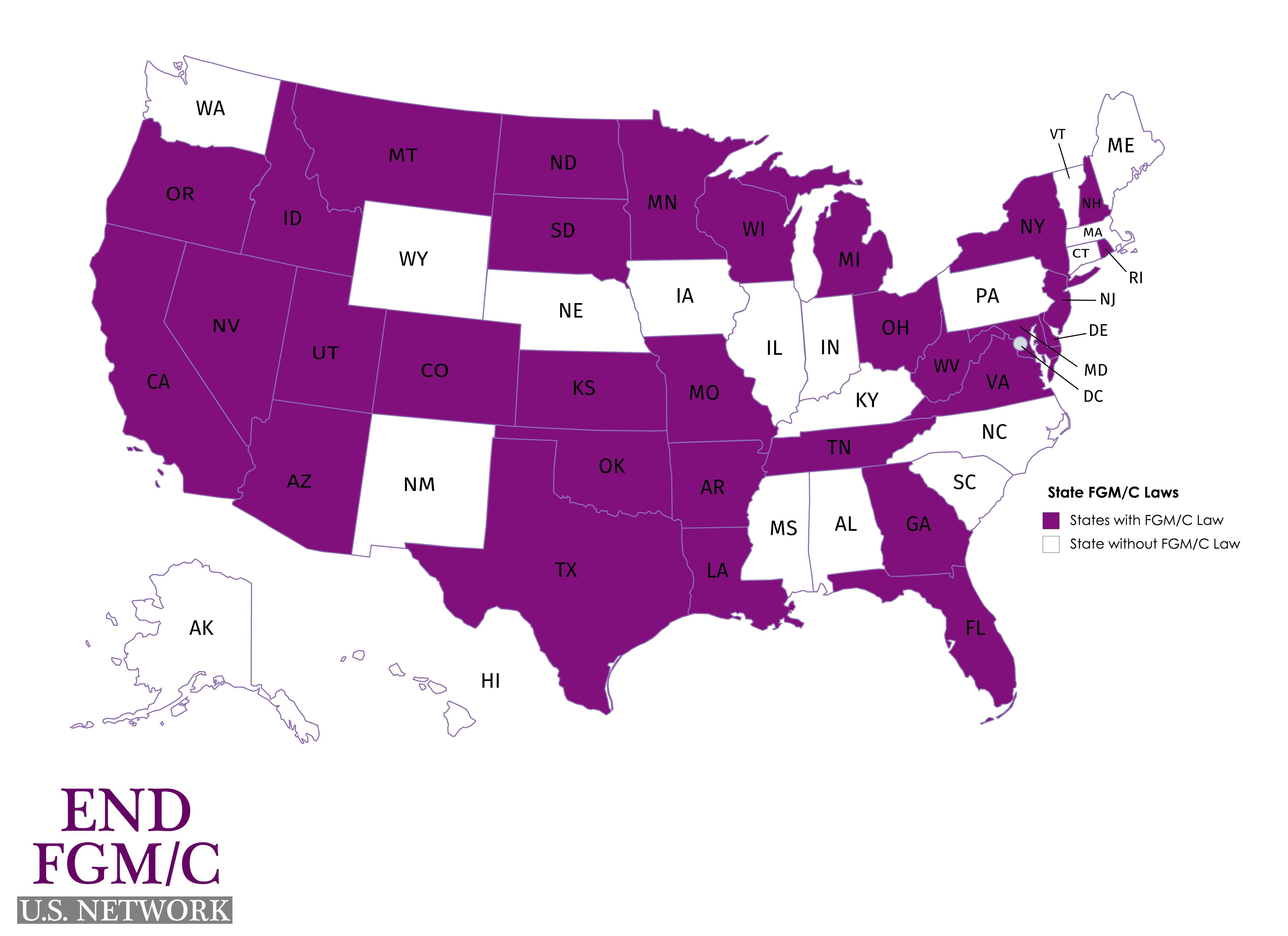On April 10, the U.S. Department of Justice decided not to appeal the November 2018 judgement by a US District Court which ruled that the federal law banning Female Genital Cutting is unconstitutional. The District Court had stated that FGC is a “local criminal activity” to be handled at the state level and that Congress did not have the authority to enact the federal law under the commerce clause. While the Department of Justice cites such technicalities as the reason behind its decision not to appeal the District Court’s ruling, it has also urged Congress to address the flaws and problems with the federal law against FGC so that it can be strengthened.
The District Court’s ruling in November came in the case of Dr. Jumana Nagarwala and others, who were charged with performing/aiding female genital cutting in Detroit, Michigan, on nine minor girls.
In positive news, however, 31 out of 50 states in the USA now have laws banning Female Genital Cutting after Idaho, Arkansas, and Utah passed laws to that effect in the past few months.
The Idaho legislature passed a bill outlawing FGC on March 20, and the law will be effective from July. Utah state legislators unanimously passed a bill against FGC a week earlier, on March 14. Meanwhile, the law in Arkansas, passed in February, not only criminalises FGC but also provides for introducing awareness programmes about FGC.
18 states in the US have yet to pass their own laws banning genital cutting for girls and women, which is now vital since the District Court has ruled that FGC is a state-level crime.
Meanwhile, in India, a group of grassroots Muslim women’s organisations in India released a manifesto on March 28 for political parties to take up ahead of the 2019 national Parliamentary election in April and May. The manifesto includes the demand for a special law to ban female genital cutting in India. The Indian Supreme Court is currently hearing a set of petitions demanding a law against FGC, as well as a counter-petition defending FGC on the grounds of the constitutionally-guaranteed right to religious freedom. The liberal Muslim women’s groups that released their “women’s manifesto” hope that India’s leading political parties will commit to ending FGC in their own official election manifestos.

